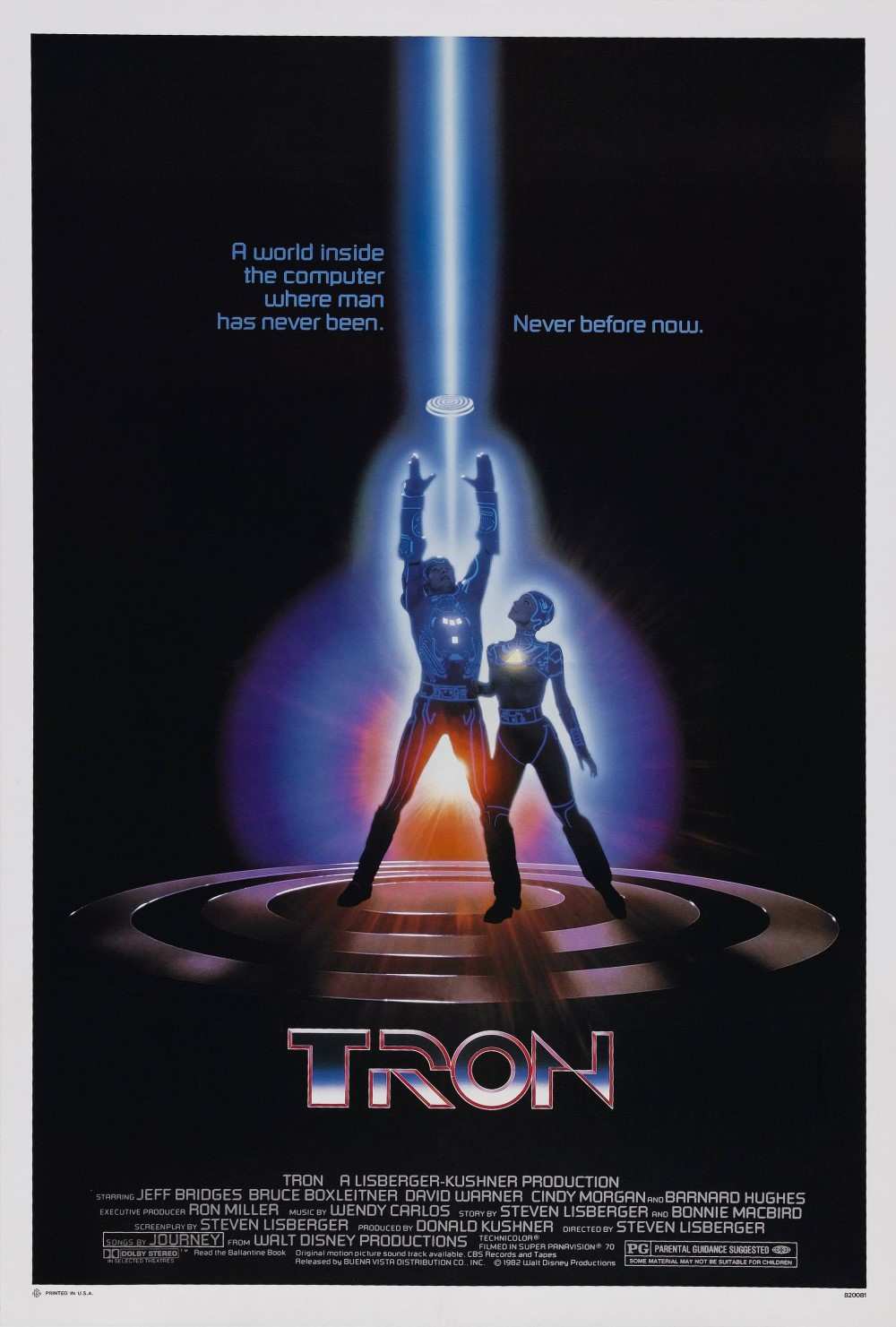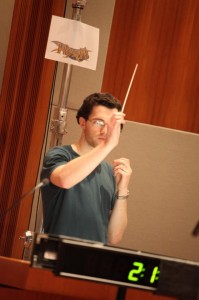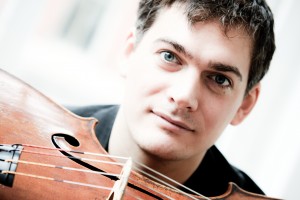Troy Baker is one of most well known voice actors in the business. He is known for his roles as Booker DeWitt in “BioShock Infinite”, Joel in “The Last of Us”, Kanji Tatsumi in “Persona 4”, Pain in “Naruto Shippuden”, Hawkeye & Loki in “Avengers Assemble” and The Joker in “Batman: Arkham Origins” and “Batman: Assault on Arkham”. In conjunction with New York Comic Con 2014 and the first annual New York Super Week Festival, Tina Guo will be performing as a guest artist in MYTHOS! A thrilling and unique concert experience, MYTHOS, showcases great music from across the spectrum of modern orchestral genres – inclusive of music from the concert stage, television and film, and video games – featuring the all-star orchestra The Third Estate, conducted by Grammy Award nominee, Austin Wintory, composer of Journey, as well as vocalists from Choral Chameleon.
Mike Gencarelli: Tell us about your involvement with “Mythos” video game concert?
Troy Baker: This counts as a win in my book for social media and for the community of gamers. I was a fan of Journey and especially the music. I reached out to Austin Wintory to compliment him not only on his amazing score but also his subsequent success. That began a long Twitter conversation back and forth about games and how we should collaborate on something musically. Also, competitive cat pictures might have been involved. This happened over at least a year and has culminated into this amazing event.
MG: What do you think that video game music is so important to its fans?
TB: The entire soundscape of a game plays such an integral part in the overall interactive experience. The same is true with movies. Dramatic moments are supported by a musical movement. Games are no different. Everyone can hum the underground tune from Mario Bros, some of us can hum selected themes from Final Fantasy of Metal Gear. What we’ve seen recently is how these thematic musical elements play such a crucial element, almost a character in these games. The main theme and even all the music from The Last of Us is a perfect example of this. Look how much of a role the music in Bioshock Infinite played in the overall experience!
MG: You have voiced many great video games including “Persona 4”, “Diablo III” and upcoming “Batman: Arkham Knight”; what do you enjoy most about video games?
TB: First and foremost I love being a part of making something that I’m going to geek out over later. As a gamer, I get to experience these games on two completely different levels and both are equally magical, first as an actor, then as a player. There’s not too many jobs that can boast that kind of benefit. I love that in the gamespace some no name kid from Texas can be a “leading man” in a huge franchise and maintain some anonymity that allows me to hide behind the character. I always want the role I am playing to take center stage, not me.
MG: Ranging from anime to video games; which is more challenging to work in?
TB: Both have their intrinsic challenges and each job requires a certain skill set. I view myself as a carpenter. I come into every job with my toolbox and I pull out the necessary tool for the job. At it’s root, however, everything I do has a foundation in just being an actor. Sometimes you’ll only use your voice and allow the animators to interpret your performance, others the onus is on you to present that character soup to nuts in your performance.
TB: In a single word: “humbling”. I grew up on Batman. It was my first comic I ever purchased. I’ve seen everyone from Caesar Romero, Jack Nicholson, Heath Ledger and, of course, Mark Hamill portray that role. To in any way be counted among those people, to have stepped into those shoes in any way, is an honor. I would rush home from school to make sure I caught Batman: The Animated Series on TV. Which to me, changed mover animation and how we tell a story in that medium. That show is unparalleled. To be directed by Andrea Romano was nothing short of a dream come true.
MG: What was the best part of getting to voice both Hawkeye and Loki in “Avengers Assemble”?
TB: The fact that they let me! I was cast as Loki first and really thought I would be recast as soon as I was cast in Avengers Assemble as Hawkeye. I’ve always loved Hawkeye, especially after The Ultimates series, because you got to see him as just a guy. Not a superhero with crazy powers, but just someone who is really REALLY good at what they do and can fight shoulder to shoulder along side a god, a gamma freak and a billionaire in an iron suit.
MG: Tell us about your first solo album “Sitting in the Fire”?
TB: It’s been such a labor of love. Some of these songs have been gestating for almost 10 years, waiting for the right time, right place. We finally found both. Our producer, Johnny What, our engineer and mixer Rob King and I, along with our musicians went up into the mountains of Big Bear, California with almost a half a million dollars in gear and tracked this record in an amazing cabin. It was a truly remarkable experience. Death bed moment for me. I’m proud and excited that the album is finally coming out. It’ll be available on iTunes, Amazon, Google Play and all digital retailers as well as an actual “digital LP” physical copy in select stores October 14th.





